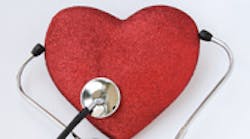Hypertension, or high blood pressure, is present in about one in three, or 78 million people in the USA. (1) It is often called a silent disease. By 2030, this figure is projected to increase to 111 million. Once we reach age 55, we have a 90% chance of becoming hypertensive. (2) This article will discuss prevention and early assessment of hypertension, and seven unexpected risk factors for high blood pressure.
BPA may acutely increase blood pressure
A study published in the journal Hypertension states that bisphenol A (BPA), found in some food packaging (e.g., plastic bottles, lining of cans), could seep into food and drink and raise blood pressure. (3) Previous studies disclosed that chronic BPA exposure is connected to heart disease and high blood pressure. This study is the first to show a direct and immediate impact on blood pressure levels. It demonstrated that BPA exposure from consuming canned or packaged beverages and foods increases blood pressure acutely. While some researchers agree in principle with the hostile effects of BPA on human health, especially blood pressure, some have asked for clarification regarding the methods used in the study.
Sleep apnea and high blood pressure
Sleep apnea, which often goes undiagnosed, can lead to snoring and elevated blood pressure. When breathing is interrupted, blood oxygen levels are lowered. The brain sends signals through your nervous system to increase the flow of oxygen to the heart and brain, thus constricting blood vessels. Frequent drops in blood oxygen levels, along with reduced quality of sleep, can also trigger the release of stress hormones, which raise your heart rate and increase your risk for high blood pressure. (6) Why is this important? Heart disease is the leading cause of death in the United States, and stroke is the fifth leading cause of death, as well as a leading cause of disability. High blood pressure is a major risk factor for both.
ADDITIONAL READING |Snoring or dying? There's a difference
Certain pharmaceuticals can exacerbate hypertension, and should be used with caution (i.e., non-steroidal anti-inflammatory drugs (NSAIDs), cough and cold medications with decongestants, estrogen, migraine headache medications, weight loss drugs). (8) Street drugs such as cocaine and ecstasy can also raise blood pressure. And lastly, a correlation between hypothyroidism and high blood pressure has been reported. (9) In fact, hypothyroidism has been recognized as a cause of secondary hypertension.
You may not think of it when you’re getting ready to relax in a hot tub, but heat from hot tubs and saunas causes blood vessels to expand (i.e., vasodilation). Vasodilation happens during normal activities like a brisk walk or other exercise. People with high blood pressure should use hot tubs and sauna with caution, and not move back and forth between cold water and hot tubs or saunas, as it could cause an increase in blood pressure. (10)
Are you taking blood pressure in the dental office? A dental hygienist recently posted an anecdotal account of when she refused treatment on a patient and sent the patient to a physician due to a dangerously high blood pressure. The patient later returned and saved the dental hygienist for saving her life! For a continuing education course on Blood Pressure Guidelines and Screening Techniques, visit the dentalcare website. You, too, may save a life!
References
1. Facts: Million Hearts: Saving millions of lives by working together. American Heart Association website. http://www.heart.org/idc/groups/heart-public/@wcm/@adv/documents/downloadable/ucm_450867.pdf. Accessed February 17, 2015.
2. Chobanian AV, Bakris GL, Black HR, et al. The seventh report of the joint national committee on prevention, detection, evaluation, and treatment of high blood pressure. Hypertension. 2003;42:1206-52.
3. Bae S, Hong YC. Exposure to bisphenol A from drinking canned beverage increases blood pressure: Randomized crossover trial [published online ahead of print December 8 2014]. Hypertension. 2015;65:313-9.
4. DiNicolantonio JJ, Lucan SC. The wrong white crystals: Not salt but sugar as aetiological in hypertension and cardiometabolic disease. Open Heart. 2014;1:e000167. doi: 10.1136/openhrt-2014-000167.
5. 180,00 deaths worldwide may be associated with sugary soft drinks. AHA/ASA Newsroom. http://newsroom.heart.org/news/180-000-deaths-worldwide-may-be-associated-with-sugary-soft-drinks. Published March 19 2013. Accessed February 17 2015.
6. Sleep Apnea and Heart Disease, Stroke. American Heart Association website. http://www.heart.org/HEARTORG/Conditions/More/MyHeartandStrokeNews/Sleep-Apnea-and-Heart-Disease-Stroke_UCM_441857_Article.jsp. Accessed February 17 2015.
7. Hawkley LC, Thisted RA, Masi CM, Cacioppo JT. Loneliness predicts increased blood pressure: 5-year cross-lagged analyses in middle-aged and older adults. Psychol Aging. 2010;25:132-41.
8. Drug-induced hypertension. MedlinePlus. http://www.nlm.nih.gov/medlineplus/ency/article/000155.htm. Accessed February 17 2015.
9. Stabouli S, Papakatsika S, Kotsis V. Hypothyroidism and hypertension. Expert Rev Cardiovasc Ther. 2010; 8:1559-65. doi: 10.1586/erc.10.141.
10. Hot tub and sauna use and high blood pressure. American Heart Association website. http://www.heart.org/HEARTORG/Conditions/HighBloodPressure/PreventionTreatmentofHighBloodPressure/Hot-Tub-and-Sauna-Use-and-High-Blood-Pressure_UCM_301887_Article.jsp. Accessed February 17 2015.










